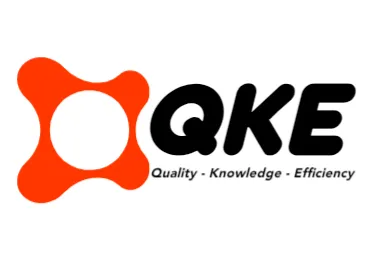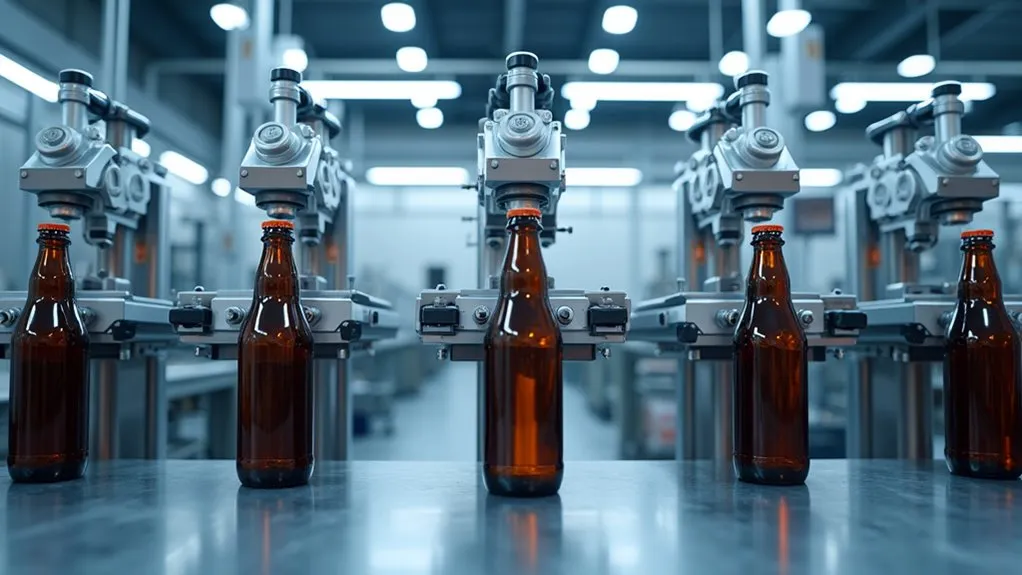In 2025, the top automatic labeling machines for bottles excel in diverse applications. Quadrel’s ProLine achieves high-speed labeling at 500 ppm for large-scale production. Versatile systems handle varied shapes with servo-driven precision and adjustable settings. Compact units, ideal for small operations, offer 10-60 ppm with easy setups. Advanced models integrate AI and IoT for smart workflows, while eco-friendly options use linerless labels and sustainable materials. Explore further to uncover detailed insights on each solution.
Key Takeaways
- Quadrel’s ProLine offers high-speed labeling at 500 ppm, ideal for large-scale bottle production.
- Herma’s H400 provides versatility for diverse bottle shapes with precise servo-driven placement.
- Label-Aire’s 3138-N handles compact operations with speeds of 10-60 bottles per minute.
- Krones Modular Labeler integrates AI and IoT for smart, automated bottle labeling workflows.
- Sidel’s EvoDECO supports eco-friendly labeling with linerless applicators and energy-efficient servo motors.
Leading High-Speed Labeler for Large-Scale Production
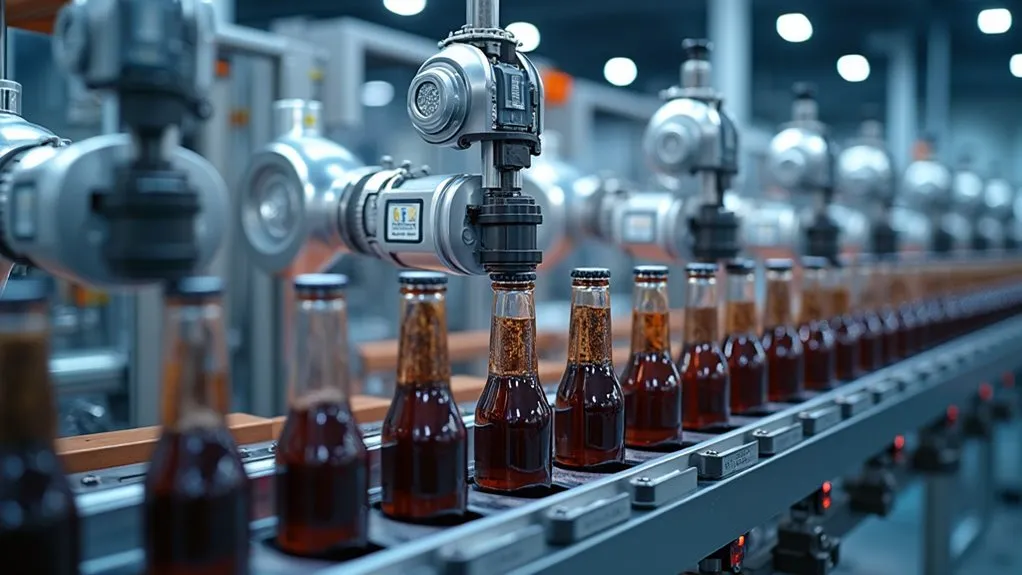
High-speed labeling machines are engineered to meet the rigorous demands of large-scale production, delivering exceptional performance for industries requiring rapid output. These systems, designed for Production Scaling, achieve impressive rates, with models like Quadrel’s ProLine exceeding 300 labels per minute (ppm) and some reaching up to 500 ppm based on product and label dimensions. Rotary labelers, outperforming linear counterparts, enable continuous, high-volume labeling, while fully automatic machines integrate seamlessly into existing lines for optimized workflow.
Speed Enhancements are driven by servo-driven technology, ensuring precise label placement even at peak velocities. Advanced control systems, such as PLC and touchscreens, further refine operational efficiency, supporting 24/7 performance in demanding environments. Manufacturers like Krones AG and HERMA prioritize cutting-edge designs to boost throughput and maintain label accuracy. Such innovations reduce costs through automation and uphold product presentation, catering effectively to industries like food, beverage, and pharmaceuticals with high production needs. Additionally, these machines offer versatility to handle various bottle shapes and sizes, ensuring consistent labeling accuracy across diverse production requirements.
Versatile Machine for Diverse Bottle Shapes and Sizes
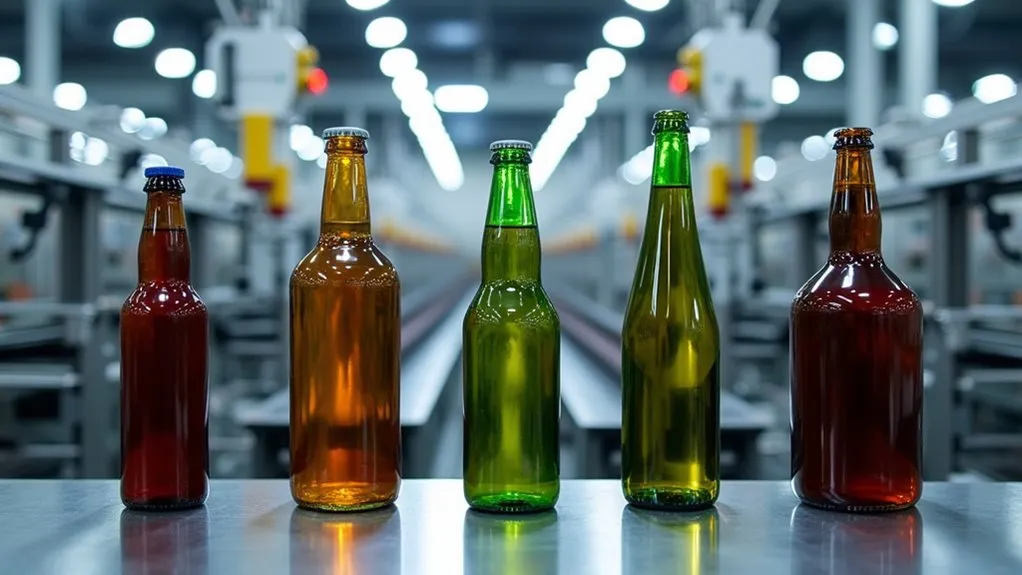
Beyond the focus on rapid output in large-scale production, automatic labeling machines also excel in accommodating a wide array of bottle configurations. These systems are engineered for Shape Variety, handling round, square, oval, tapered, and irregular forms with precision. Size Adaptation is equally critical, as machines manage diverse container dimensions without extensive reconfiguration, supported by adjustable settings and advanced sensors for accurate label placement.
Key features enhancing versatility include:
- Adaptable Mechanisms: Synchronized belts and 3-axis dispensers ensure stability across varied shapes, from glass to plastic containers.
- Flexible Configurations: Rotary and linear systems cater to multiple formats, with quick changeovers facilitated by tool-less adjustments.
- Technological Precision: Servo motors and PLC systems enable exact label positioning on diverse surfaces, regardless of bottle size or material.
Such capabilities ensure operational efficiency, meeting industry demands for customization and adaptability in bottle labeling processes with consistent accuracy.
Compact Solution for Small to Medium Operations
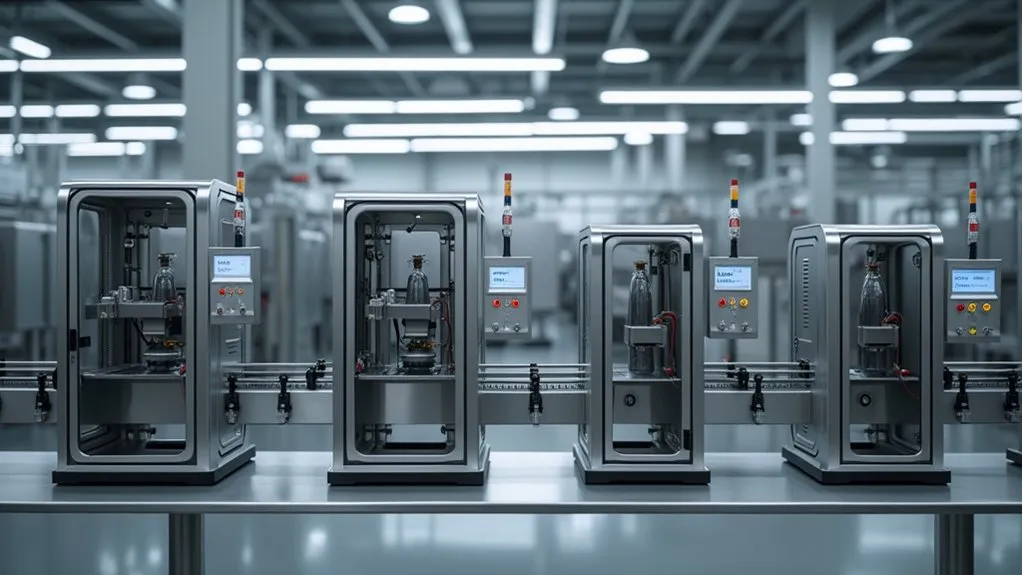
For small to medium enterprises (SMEs), automatic labeling machines offer compact solutions tailored to space-constrained and moderate production environments. These tabletop models, often with ultra-compact dimensions like 370x540x410 mm, prioritize Space Savings while seamlessly integrating into existing setups. Their portability, sometimes enhanced by wheeled frames, further optimizes limited workspace.
Operationally, these machines cater to SME needs with throughput rates of 10-60 products per minute, ideal for small batch runs or moderate production. Semi-automatic and compact automatic labelers feature user-friendly interfaces and quick changeover capabilities, ensuring Easy Setup in under 4 minutes for some models. This simplicity reduces training demands and downtime. Cost-wise, semi-automatic units range from $1,000 to $5,000, offering efficiency over manual labeling without the high investment of full-scale systems. Such compact solutions, including wrap-around and front/back labelers, provide SMEs with scalable, space-efficient tools for diverse bottling needs.
Advanced Technology With Smart Integration Features
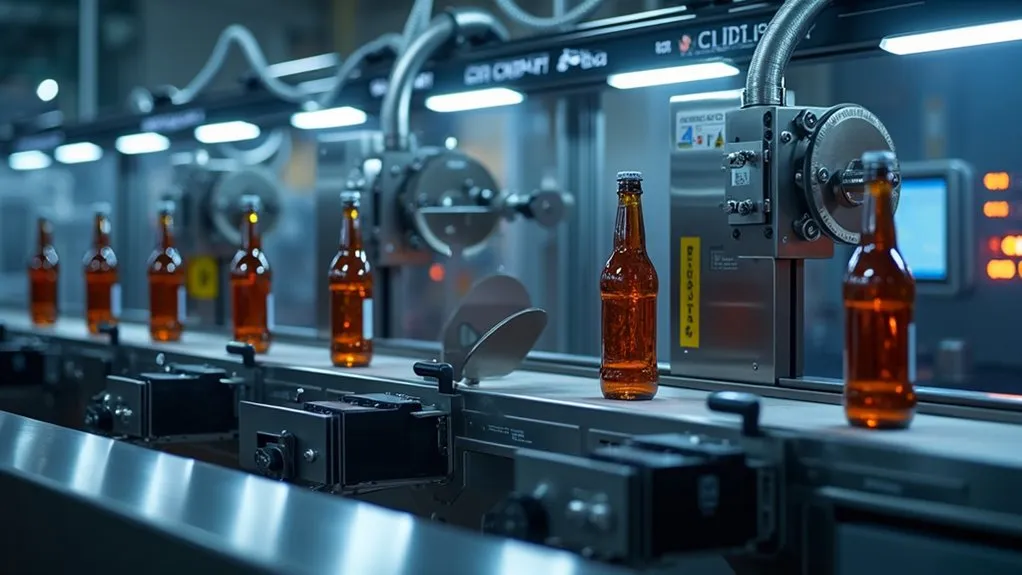
Innovation drives the evolution of automatic labeling machines, as manufacturers integrate advanced technologies to enhance precision and efficiency. Cutting-edge systems now feature AI Integration, enabling real-time quality inspection through vision systems that detect misalignments and defects with over 95% accuracy, even at high speeds. These machines leverage machine learning to analyze production data, optimizing performance and adaptability on the factory floor.
Innovation propels automatic labeling machines forward, with AI integration ensuring over 95% accuracy in real-time defect detection, even at high speeds.
Smart integration extends beyond AI, offering seamless connectivity with ERP and MES systems for automated workflows and data-driven insights. Remote Diagnostics further enhance operational uptime by allowing real-time troubleshooting and predictive maintenance from off-site locations. Key features include:
- AI-Powered Vision: High-resolution cameras for 360° bottle inspection and defect detection.
- Industry 4.0 Connectivity: IoT-enabled monitoring for real-time performance tracking.
- Intuitive Control Interfaces: Advanced HMIs for streamlined operation and remote access.
Such advancements ensure precision, reduce downtime, and elevate production efficiency in bottle labeling processes.
Eco-Friendly Option for Sustainable Labeling Needs
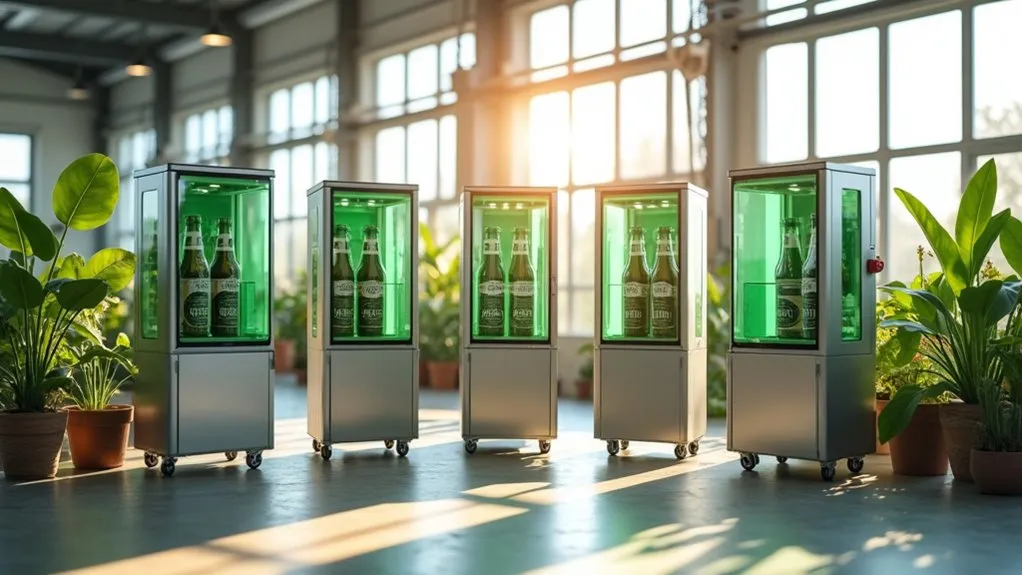
Manufacturers of automatic labeling machines are increasingly prioritizing environmental responsibility alongside technological advancements. In 2025, eco-friendly options for sustainable labeling needs stand out with innovative designs that emphasize energy efficiency and waste minimization. These machines integrate servo motors and variable-speed drives to lower power consumption, directly contributing to emission reduction goals. Additionally, linerless label applicators eliminate backing paper waste, further reducing environmental impact with significant CO2 savings.
Compatibility with eco materials is another critical feature, as these systems support biodegradable, recyclable, and plant-based labels like sugarcane fiber composites and recycled Kraft paper. Durable construction using materials such as SS304 stainless steel ensures longevity, reducing the need for frequent replacements. Modular designs adapt to sustainable transitions without compromising performance, while electromechanical applicators decrease reliance on compressed air, aligning with broader sustainability objectives. Such advancements reflect a precise balance of operational efficiency and ecological accountability in bottle labeling technology.

 Tiếng Việt
Tiếng Việt 日本語
日本語 中文 (中国)
中文 (中国) 한국어
한국어